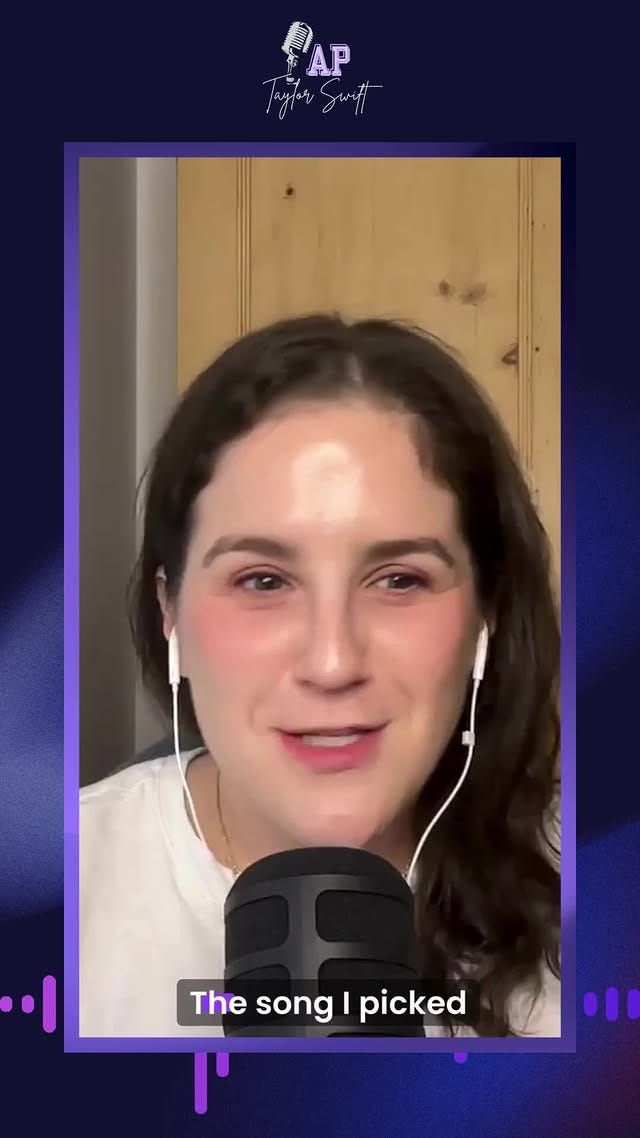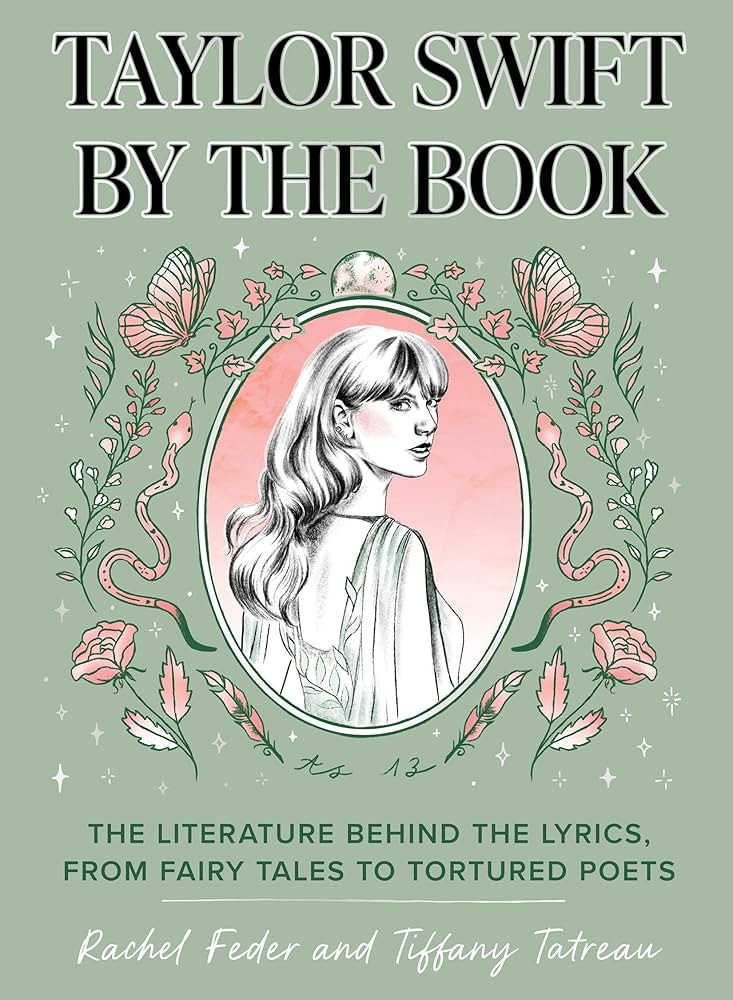This week, you get two episodes from us! First, we released Show & Tell: Greek Mythology where we each brought songs that we thought were influenced by or connected to the world of Greek mythology. Then we also had an incredible bonus episode with Rachel Feder and Tiffany Tatreau, the authors of Taylor Swift by the Book. Check out their bonus episode to learn more about their journey of creating basically an encyclopedia of Taylor’s literary references!
🎧 Listen above and ⬇️ scroll below to read some special extra credit from Tiffany and Rachel!
🎥 Sneak Peek
Catch excerpts from the podcast and behind-the-scenes content on YouTube, TikTok, and Instagram!
🛍️ Shop With Us! Active Discount Codes
As we grow, we are so excited to announce new partnerships! Here you’ll find active discount codes available to our listeners.
📚 Bookshop.org Check out all our book recommendations by episode
🔉Libro.fm Support your local bookstore while listening to great audiobooks
Code: APTS
Offer: Get a free audiobook when you start a new membership (you must use this link!)
Receive 2 audiobook credits for $14.99 USD with your first month of membership.Code: APTS30
Offer: 30% off specific audiobooks in the AP Taylor Swift playlist.
✨ Krowned Krystals Make the whole place shimmer with the best rhinestones
Code: APTS
Offer: 10% off your order when you use the link above
🎒This Week’s Extra Credit - Brought to You by Tiffany and Rachel!
For this week’s Substack, we are so excited to hand over the reigns to Tiffany Tatreau and Rachel Feder of Taylor Swift by the Book. We had so much fun recording this week’s bonus episode with these two, and are thrilled that they were willing to share even more of their brilliance in this week’s Substack. Enjoy!!
The Power of Re-Recordings and Adaptations
It’s been a big year for millennials who loved Taylor Swift & Wicked in middle school! Watching these two pop culture behemoths have such a moment made us think about what they have in common and what they can teach us about the stories we tell.
Why would anyone want to hear the same story over again? We already know how it goes, who the characters are, and how it ends. We’ve anticipated the punchlines. We’ve heard the big notes. We’ve spoiled the shocking twists. So, there! Nothing to see here. Keep it moving. New story, please!
And yet…
When Taylor Swift announced she would re-record her entire discography to regain ownership of her work and devalue the masters of the original recordings that her old label had sold off, she viewed it as a passion project. She needed to do it for herself. But, as we all know, the project has achieved huge commercial success, outselling the original albums and breaking records left and right, with each re-release becoming a huge cultural moment.
And then there’s Wicked, a 21-year-old Broadway musical that now has custom merch partnerships with every brand you can think of, colossal box office numbers, and critical acclaim. It’s an old story that’s reaching larger audiences than ever.
Now, is there something comforting about these new versions of beloved art? Of course. It’s warm and fuzzy to feel like something stayed the same in a world where things so rapidly change. To know with certainty the ending of the story when we can’t see what’s around the next bend in our own. Both adaptations honor the original work and celebrate it. Neither strays too far from the thing that fans have spent their whole lives loving.
But there’s also something powerful about the very act of remaking. These “same” stories hold different power when we retell them in a new context. (Broadway knows. They’ve been doing revivals forever, arguing that old plays hold timeless themes and speak to our current moment.)
First off, we (the audience) are older. If you encountered any of these pieces in their original form, you were younger than you are today. You knew a little less. You looked at the world a little differently. Possibly the number one thing that’s different about them is you.
But there are other variables! With revivals and adaptations (and re-recordings), sometimes certain lines get louder when we have new information about a main character. That’s half the fun! Once you know the lore of a piece, experiencing new takes, even by the same person, offers a million more Easter Eggs to be discovered and enjoyed. Listening to Taylor Swift sing “Fifteen” as a teenager was one thing. Listening to her sing it in her thirties holds a different meaning, much like a musical theatre reprise when you see a character go through some life-changing event and then sing the same lyrics they sang in Act 1 with new weight in Act 2.
But let’s take that one step further. Because girlhood is part of intellectual history. When we experienced Wicked or a Taylor Swift album for the first time, we might not have realized that, at least consciously. And as we moved forward in our lives and educations, we may not have always been given the message that art about friendship and crushes and fraught ambitions–the stories of girlhood–are weighty and serious tomes that should inform our thinking. But here’s the thing: they are. What mattered to us when we were younger is important, both to who we were then, and to who we are now. And breathing new life into works of art that informed the way we were might just offer us new roadmaps for who we want to be.


